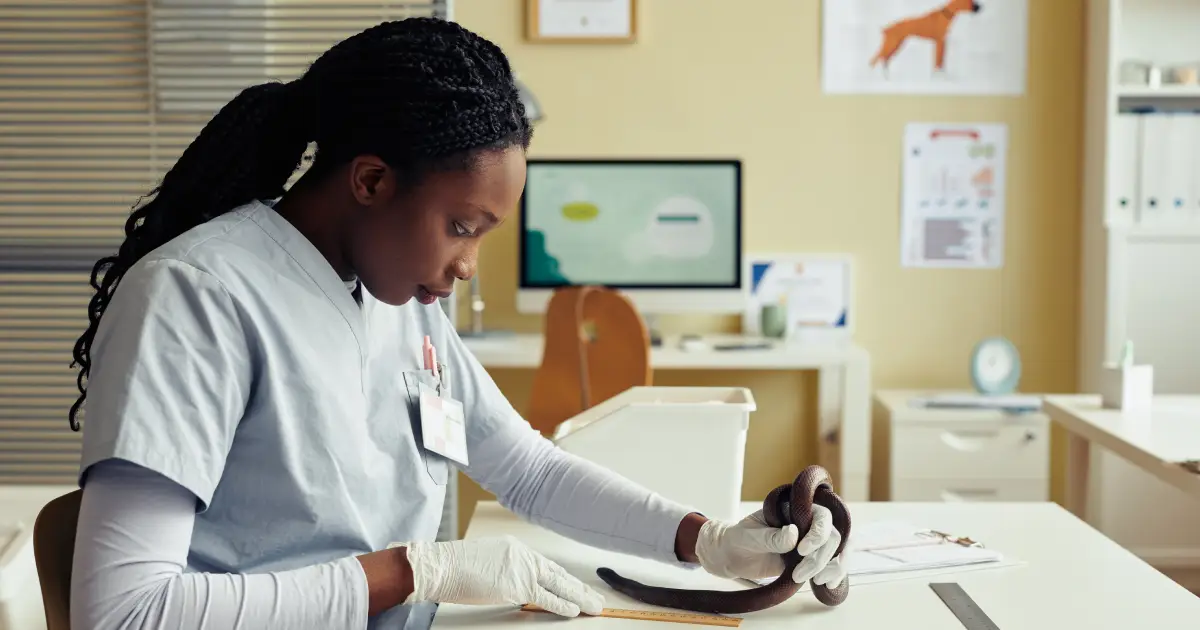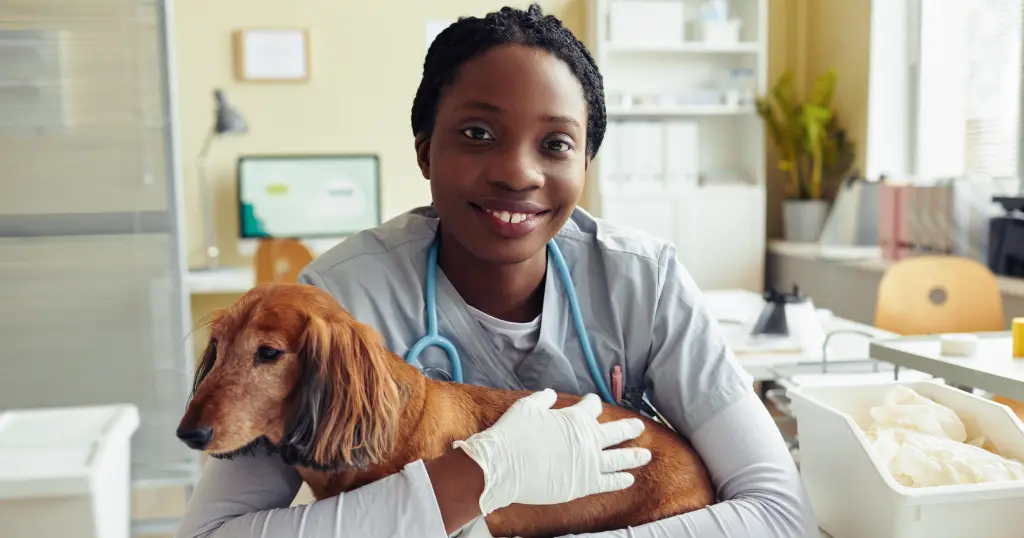The adorable wagging tails, playful purrs, and curious eyes – it’s no wonder many people dream of working with animals. But the world of veterinary medicine goes far beyond cuddling kittens and scratching puppy bellies. Veterinary Technician Assistants (VTAs) play a crucial role in ensuring the health and well-being of animals, forming the backbone of veterinary care teams.
This blog post dives deeper than the “cuteness factor” to explore the vital work of VTAs. We’ll explore their responsibilities, the skills they utilize, and the impact they have on animal lives. If you’re passionate about animal welfare and considering a career in veterinary medicine, this post might just be the nudge you need to explore the rewarding world of Veterinary Technician Assisting.
The Unsung Heroes of Animal Care
Veterinarians are often the face of veterinary medicine, but VTAs are the essential support system that keeps clinics running smoothly and efficiently. They work directly with veterinarians, but their responsibilities extend far beyond simply assisting with procedures.
A Day in the Life of a Veterinary Technician Assistant:
A typical day for a VTA can be a whirlwind of activity, requiring a blend of technical skills, compassion, and adaptability.

Here’s a glimpse into some of their key tasks:
- Patient Care: VTAs are responsible for a wide range of patient care tasks, including:
- Intake and History: They greet pet owners, gather medical history information, and perform initial weight and temperature checks.
- Restraint and Handling: They assist veterinarians in restraining animals during examinations, procedures, and treatments.
- Medication Administration: Under veterinary supervision, VTAs administer medications orally, by injection, or topically.
- Sample Collection: They collect blood, urine, and fecal samples for diagnostic testing.
- Patient Monitoring: They monitor vital signs and animal behaviour after procedures and during hospitalization.
- Post-Operative Care: They provide post-operative care to ensure animal comfort and recovery.
- Laboratory and Diagnostics: VTAs play a vital role in laboratory analysis:
- Sample Preparation: They prepare samples for testing, such as centrifuging blood or preparing slides for microscopic examination.
- Running Tests: They may operate some diagnostic equipment under veterinary supervision.
- Assisting with Diagnostics: They assist veterinarians in interpreting test results.
- Client Communication: VTAs are a vital link between veterinarians and pet owners:
- Client Education: They educate pet owners on pet care, medications, and disease prevention.
- Client Reassurance: They provide emotional support and answer questions to worried pet owners.
- Client Communication: They handle phone calls, schedule appointments, and prepare client invoices.
Beyond the Technical: The Skills You Need to Succeed
While technical skills are essential, being a successful VTA requires a well-rounded skillset:
- Compassion and Empathy: Working with animals in various states of health requires a genuine love for animals and the ability to understand their needs.
- Communication Skills: Strong written and verbal communication are crucial for interacting with veterinarians, clients, and colleagues.
- Critical Thinking and Problem-Solving: VTAs need to think on their feet and adapt to unexpected situations.
- Teamwork: Veterinary clinics are collaborative environments where VTAs work closely with veterinarians, receptionists, and other staff.
- Time Management and Organization: The ability to prioritize tasks and manage a busy workload is vital.
- Physical Stamina: The job can be physically demanding, requiring lifting, bending, and standing for extended periods.

Making a Difference: The Impact of VTAs
The work of VTAs goes beyond completing tasks – it has a significant impact on animal lives:
- Improved Animal Welfare: VTAs contribute directly to improved animal welfare by ensuring animals receive timely and proper care.
- Enhanced Client Experience: Their communication skills and empathy create a positive and supportive environment for pet owners.
- Increased Efficiency and Productivity: VTAs keep the clinic running smoothly, allowing veterinarians to focus on diagnoses and treatments.
- Supporting Veterinarians: They free up veterinarians’ time, allowing them to dedicate more time to complex cases and surgeries.
- Advancing Animal Healthcare: VTAs contribute to research and development in veterinary medicine by assisting with data collection and laboratory procedures.
A Rewarding Career Path
The role of a VTA is both challenging and rewarding. It offers a chance to work directly with animals, contribute to their well-being, and be part of a team dedicated to animal health.
Is a Career as a Veterinary Technician Assistant Right for You?
If you:
- Have a passion for animals and their well-being.
- Enjoy working in a fast-paced environment.
- Are comfortable with some physical demands.
- Possess strong communication and teamwork skills.
- Are detail-oriented and organized.
Then a career as a Veterinary Technician Assistant could be a perfect fit!
Getting Started as a VTA:
Granville College’s Veterinary Technician Assistant Diploma Program can equip you with the knowledge and skills you need to launch your rewarding career in animal care. Our program offers a comprehensive curriculum that combines classroom learning with practical experience in veterinary clinics.
The Granville College Advantage:
- Experienced Faculty: Learn from instructors with extensive experience in veterinary medicine.
- Hands-on Training: Gain practical experience through placements at local veterinary clinics.
- Industry-Standard Curriculum: Our program meets the standards set by the Canadian Veterinary Medical Association (CVMA).
- Career Support: We offer career counselling and placement assistance to help you find your dream job.
Ready to Make a Difference in Animal Lives?
If you’re ready to embark on a fulfilling career path that allows you to work with animals and make a positive impact, consider enrolling in Granville College’s Veterinary Technician Assistant Diploma Program. Visit our VTA program page to learn more about the program curriculum, admission requirements, and career opportunities.







